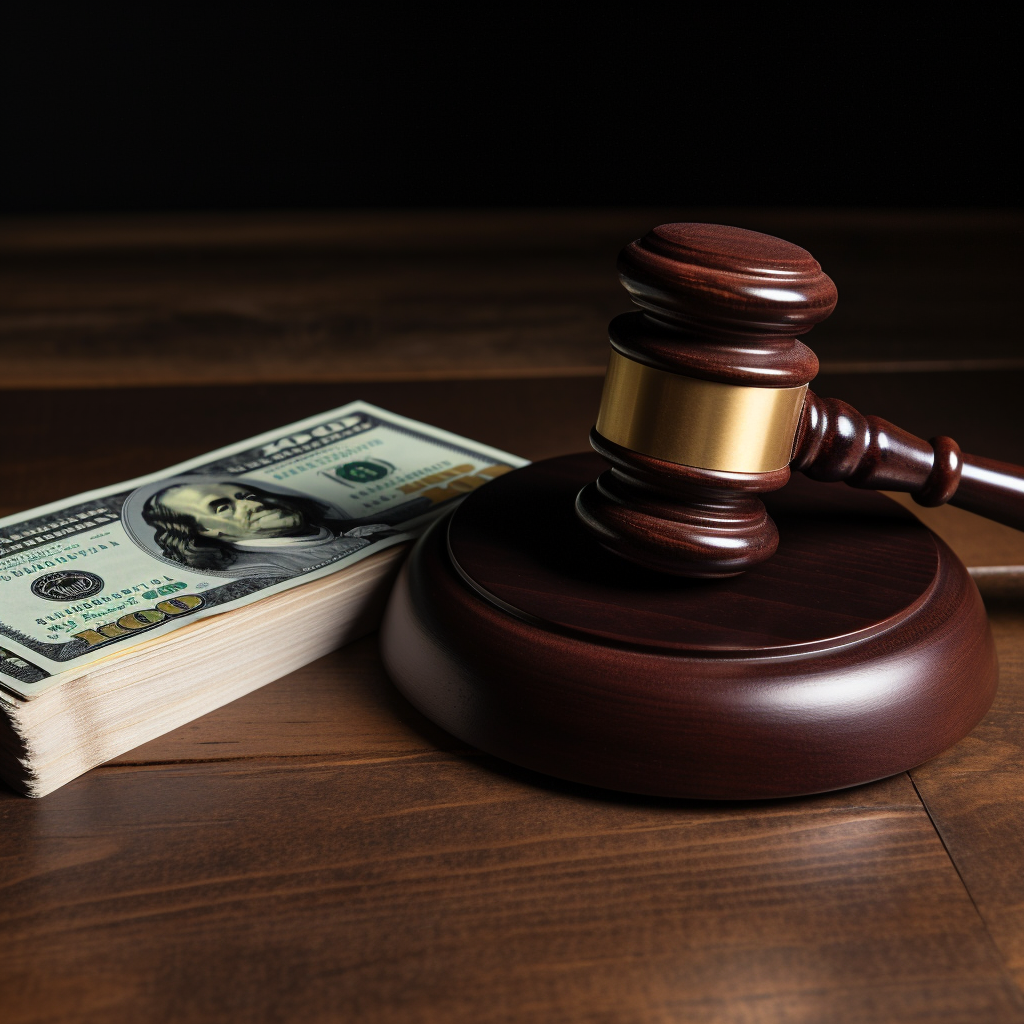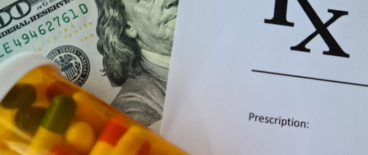Both the Anti-Kickback Statute and Stark Law are intended to help ensure that medical decision-making is not compromised by improper financial incentives. These laws ensure healthcare providers and organizations base medical decisions on the best interest of the patient – not the best interest of their own wallet.
If you share knowledge and proof that a hospital, drug company, or healthcare provider may be getting kickbacks, you may be entitled to a financial reward under the False Claims Act. Coming forward with information about ongoing healthcare fraud schemes involving the Stark Law or Anti-Kickback Statute could entitle you to a financial reward. Call our firm to connect with a member of our team.
What is the Anti-Kickback Statute?
The Anti-Kickback Statute makes it illegal for healthcare providers to accept bribes, money, or gifts “knowingly and willfully” in return for Medicare, Medicaid, or other federal healthcare program business. The Remuneration Anti-Kickback Statute prevents healthcare providers from offering incentives for others to refer patients to them. The intent of the Anti-Kickback Statute is to prevent medically unnecessary, poor quality, or harmful services being administered to patients.
What is the Stark Law?
The Stark Law prohibits physicians from referring patients for certain health services – paid for by Medicare – to anyone with whom they have a financial relationship. The Stark Law is intended to protect the integrity of patient referrals and ensure that recommendations are made with patients in mind, as opposed to profits.
How Do Kickbacks Violate Stark Law?
Kickbacks incentivize healthcare providers to refer patients to facilities in which they have a financial interest. The services provided are then billable to Medicaid and Medicare, and are funded by taxpayer dollars.
When a healthcare provider is more interested in the benefit of a kickback at an affiliated facility, they may recommend and order services that a patient does not actually need or which would harm the patient in order to maximize their affiliate’s reimbursement from government healthcare programs.
Examples of Anti-Kickback and Stark Law Violations
Off-Label Marketing
 Pharmaceuticals and certain medical devices must be approved by the FDA before they can be marketed or sold to the public. Medicare and Medicaid require that reimbursement for pharmaceuticals and medical devices is only available when those pharmaceuticals or devices are used in the manner approved by the FDA. Companies that market and sell pharmaceuticals or devices, however, often unlawfully promote the use of their products for uses not approved by the FDA (called “off-label” uses) to increase profits. This off-label marketing leads to the submission of improper claims to Medicare and Medicaid.
Pharmaceuticals and certain medical devices must be approved by the FDA before they can be marketed or sold to the public. Medicare and Medicaid require that reimbursement for pharmaceuticals and medical devices is only available when those pharmaceuticals or devices are used in the manner approved by the FDA. Companies that market and sell pharmaceuticals or devices, however, often unlawfully promote the use of their products for uses not approved by the FDA (called “off-label” uses) to increase profits. This off-label marketing leads to the submission of improper claims to Medicare and Medicaid.
The Department of Justice has been particularly aggressive about investigating Stark and Anti-Kickback law schemes and some of the largest qui tam cases ever – including some cases that have settled for more than $1 billion – arose out of such off-label marketing schemes.
If you are aware of old, new, or evolving fraud schemes involving off-label marketing, the Department of Justice may be very interested in learning more about the information you have. You may also be entitled to a financial reward. Contact the expert qui tam attorneys at Tycko & Zavareei LLP for a free and confidential consultation.
Pharma Speaker Programs
All too often, pharmaceutical and medical device companies provide unlawful financial incentives to healthcare providers while they also market their drugs or devices to be used in untested “off-label” methods. These fraud schemes seem to go hand-in-hand.
One all-too common kickback scheme is where a pharmaceutical or medical device company unlawfully pays physicians thousands of dollars to participate in a sham speaker program. In these programs, physicians are provided with plane tickets, vacations, expensive meals and alcohol all under the expectation that the physicians will write more prescriptions for the company’s drugs than they normally would in the absence of such incentives.
 This kind of kickback scheme has been one of the most aggressive areas of False Claims Act enforcement for the Department of Justice. In almost every case, the DOJ was “put onto the fraud” by individuals who worked inside the company, often sales representatives who marketed the drugs to healthcare providers.
This kind of kickback scheme has been one of the most aggressive areas of False Claims Act enforcement for the Department of Justice. In almost every case, the DOJ was “put onto the fraud” by individuals who worked inside the company, often sales representatives who marketed the drugs to healthcare providers.
One pharmaceutical company paid over $95 million for violating the False Claims Act by marketing one of its drugs off-label and by paying physicians in the form of money, speaker program fees, travel, and food to induce them to write prescriptions for the drugs. The three former employees of the pharmaceutical company who reported the fraud scheme to the Department of Justice received more than $17 million.
In another case, a pharma company paid bribes and kickbacks to physicians to write prescriptions for a powerful opioid. The drug company admitted that it set up a sham speaker program to funnel the payments to physicians. It paid $225 million dollars. Several individuals reported this sham speaker program to the Department of Justice and were entitled to a share of the $225 million recovery.
Addiction Treatment Center Kickbacks
In some cases, a physician who prescribes unnecessary medications or excessive amounts thereof may eventually refer their patients to an addiction treatment center with which they share a financial relationship. Unfortunately, these sham addiction centers have no intention of getting the patient real help, and may continue to prey upon their newfound dependency in search of continued profit.
This kind of predatory healthcare fraud takes its toll on victims as well as their families. Addiction treatment center kickbacks are a tragic area of medical fraud that can cost people their jobs, relationships, and even lives. Fraudulent addiction treatment centers may offer additional incentives such as plane tickets, free meals, places to stay, and even continued access to drugs in order to induce patients to remain under their care. In reality, these scam programs drain a patient dry of their insurance benefits while worsening their condition.
If you suspect that an addiction treatment center is engaging in this kind of patient brokering, it is imperative to report it at once. Doing so can stop the cycle of abuse and ensure that these predatory centers are closed down.
Medical Laboratory Kickbacks
 Thorough diagnostic testing is one of the advantages of modern medicine. It allows doctors to catch dangerous conditions before they evolve, and offers patients peace of mind knowing that they are receiving the appropriate treatment. However, when doctors refer patients to medical laboratories with which they have a financial relationship, there is an incentive to continue testing past reasonable levels, in order to maintain the payout of insurance benefits. For this reason, the Stark Law prevents physicians from referring patients to testing centers with which they have financial or familial connections. Additionally, the Anti-Kickbacks Statute prevents medical laboratories from offering or accepting payments, discounts, or bribes in order to guarantee business.
Thorough diagnostic testing is one of the advantages of modern medicine. It allows doctors to catch dangerous conditions before they evolve, and offers patients peace of mind knowing that they are receiving the appropriate treatment. However, when doctors refer patients to medical laboratories with which they have a financial relationship, there is an incentive to continue testing past reasonable levels, in order to maintain the payout of insurance benefits. For this reason, the Stark Law prevents physicians from referring patients to testing centers with which they have financial or familial connections. Additionally, the Anti-Kickbacks Statute prevents medical laboratories from offering or accepting payments, discounts, or bribes in order to guarantee business.
As recently as April 2022, the Department of Justice filed a False Claims Act lab fraud complaint against two prominent laboratories, True Health Diagnostics LLC and Boston Heart Diagnostics Corporation. The complaint alleged that these testing centers hired recruiters to make sham investment payments to physicians in the area in order to entice them to send patients to their facilities.
Home Healthcare Kickbacks
Home healthcare is on the rise throughout the United States. According to recent data, the home healthcare services market is projected to grow from a $94.17 billion industry to a $153.19 billion one by 2029. With this expected increase also comes a heightened risk of fraud and abuse.
Home healthcare is a life-changing option to care for seniors and those with long-term conditions. Unfortunately, it also is a situation rife with the potential for scams such as over-billing hours, hiring under qualified staff, and outright patient neglect. All of these problems may be more likely when a home health aide is pre-selected based on kickbacks that their agency has provided to doctors or nurses. Physicians are not allowed to recommend home healthcare based on pre-existing financial arrangements. Doing so may open them up to prosecution under the Anti-Kickbacks Statute, the Stark Law, as well as the False Claims Act.
Kickback Schemes and Elder Abuse
 The Department of Justice takes schemes to defraud our nation’s elders very seriously. Many elder abuse scandals also target veterans, due to the possibility to double dip into VA funds as well as Medicaid.
The Department of Justice takes schemes to defraud our nation’s elders very seriously. Many elder abuse scandals also target veterans, due to the possibility to double dip into VA funds as well as Medicaid.
Kickbacks schemes involving elder abuse may be some of the darkest kinds of healthcare crimes possible. If you suspect someone in your family is being neglected, abused, or taken advantage of by their healthcare provider, report it immediately. Prosecution under the Anti-Kickback Statute and Stark Law may be able to prevent these kinds of providers from being eligible to receive benefits in the future. They may also include stiff fines, heavy financial penalties, and even the possibility of jail time.
Additional Kickback Schemes
There are many kinds of additional kickback schemes at play. Some involve the denial of negotiated discounts to military families. Another pharmaceutical company paid $350 million for:
- Inducing clinics and physicians with lavish dinners, drinks, entertainment and travel, medical equipment and supplies
- Unwarranted payments for purported speaking engagements and bogus case studies
- Cash, credits, and rebates
Numerous individuals reported this unlawful kickback scheme to the Department of Justice and were entitled to a reward.
Reporting Stark Law and Anti-Kickback Violations
Violations of both the Stark Law and Anti-Kickback Statute should be brought to the attention of a qualified qui tam lawyer at once. They will be able to escalate the case to the appropriate enforcement officials at the appropriate government agency’s Office of the Inspector General, the Department of Justice, and the Centers for Medicare and Medicaid Services (CMS). They will also be able to advise you if your case qualifies you for a possible whistleblower reward, and if so, how to follow up on your claim.
Who Investigates Stark and Anti-Kickback Fraud?
Stark Law and Anti-Kickback Statute compliance is the responsibility of each medical practitioner. Enforcement depends on whether there is civil or criminal prosecution involved, and is handled by the Department of Justice, the Department of Health & Human Services Office of Inspector General (OIG), and the Centers for Medicare & Medicaid Services (CMS).
 Stark Law and Anti-Kickback Whistleblower Rewards
Stark Law and Anti-Kickback Whistleblower Rewards
If you are able to report on a violation of these medical integrity laws, there may be an award available for your honesty. Prosecution under the False Claims Act (FCA) can lead to a whistleblower receiving anywhere from 15 to 30% of the total recovery amount. Because FCA violations carry up to treble damages per false claim, this can lead to Stark Law whistleblower payouts of millions of dollars.
Does Stark Law Protect Whistleblowers?
Stark Law and Anti-Kickback whistleblower protections are available for those who come forward. The False Claims Act is a major enforcement tool for pursuing justice against those who are in violation of these federal statutes. Under the False Claims Act, whistleblowers who are retaliated against by their employers are entitled to sue for:
- Double back pay, if they have been wrongfully discharged
- Reinstatement at the same seniority level
- Additional fees and damages
- Reasonable legal costs
Notable Stark and Anti-Kickback False Claims Act Cases
False Claims Act settlements involving violations of the Stark Law and Anti-Kickback Statute can be upwards of tens of millions of dollars in value. Here are a few recent settlements of note:
- $36.5 million to settle allegations that St. Francis Physicians Services Inc., a 501(c)3 South Carolina charitable organization violated False Claims Act, the Stark Law, and the Anti-Kickback Statute by making payments to surgeons that were tied to volume and value of referrals. The whistleblower in this case received $10.2 million of the overall settlement.
- $18.2 million from Flower Mound Hospital in order to settle allegations of falsely submitting and certifying claims to Medicare, Medicaid, and TRICARE that were in violation of the Stark Law and Anti-Kickbacks Statute. One of the physician-owners was a whistleblower in the case, and received approximately $3 million from the settlement.
- $4.7 million from Steward Health Care System LLC, one of the largest private for-profit healthcare systems in the US. In addition to the settlement, Steward-affiliated Good Samaritan Medical Center, Inc. (GSMC) entered into a five-year Corporate Integrity Agreement with the U.S. Department of Health and Human Services Office of the Inspector General in order to regularly review its compliance with the Anti-Kickback Statute and the Stark Law. The whistleblowers in this case received a 17% relators’ share.
Anti-Kickback Statute & Stark Law FAQ’s
When does the Stark Law and Anti-Kickback statute apply?
 Prosecution under the Stark Law commonly comes from ownership arrangements, or any time a financial relationship is involved between a doctor or physician and a service to which they refer their patient. Anti-Kickback Statute violations may happen whenever compensation of any kind (whether direct payments, enticements, or substantial discounts) change hands between medical providers, pharmaceutical companies, testing laboratories, and more. In both of these cases, public funds such as Medicaid and/or Medicare must be involved in bankrolling or reimbursing some of the cost.
Prosecution under the Stark Law commonly comes from ownership arrangements, or any time a financial relationship is involved between a doctor or physician and a service to which they refer their patient. Anti-Kickback Statute violations may happen whenever compensation of any kind (whether direct payments, enticements, or substantial discounts) change hands between medical providers, pharmaceutical companies, testing laboratories, and more. In both of these cases, public funds such as Medicaid and/or Medicare must be involved in bankrolling or reimbursing some of the cost.
What is the difference between the Stark Law and Anti-Kickback Statute?
The federal Anti-Kickback Statute prohibits those who can influence healthcare decisions from accepting compensation, gifts, or favors in exchange for services that are reimbursable through Medicare or Medicaid.
On the other hand, the Stark Law prohibits physicians from referring patients to, and accepting referrals from, entities that they or an immediate family member have a financial relationship with. Unlike the Anti-Kickback Statute, the Stark Law does not require proof of intent to increase referrals in order to be violated.
What is an exception to the Stark Law?
There are over 30 exceptions to the Stark Law, and physicians must be sure that their situation is in compliance with all of the requirements involved. For instance, group medical practices (as long as they meet the correct structural requirements) are permitted to provide in-office ancillary services to patients such as radiology, in-house laboratory testing, pharmaceuticals, and more.
What is the Stark exception for independent contractors?
When a health care provider, such as a hospital, works with a doctor or medical practice as an independent contractor they may qualify for an exception under the Stark Law. For instance, if a smaller hospital contracts some of its work to a local neurology clinic, they may qualify for a Stark exception under the correct requirements. Compensation for independent contractors must fall within previously determined boundaries, must be reasonable and necessary for legitimate business purposes, and may not exceed fair market value.
Does the Stark Law apply to physicians assistants?
No. The Stark Law applies only to physicians, chiropractors, and dentists and does not apply to midlevel providers, such as physician assistants.
Can physicians be prosecuted under Anti-Kickback and Stark Laws?
The Anti-Kickback Statute is a federal criminal statute, meaning violators can be prosecuted. Those convicted may face fines, jail time, and exclusion from federal health care programs.
The Stark Law is a federal civil law. While Stark Law penalties exceed those imposed by the Anti-Kickback Statute, they would be non-criminal charges.
 Does Stark Law apply to hospitals?
Does Stark Law apply to hospitals?
It depends. The Stark Law prohibits a physician from referring patients to entities that they share a financial relationship, including hospitals, psychiatric hospitals, and rural primary care hospitals. Exceptions apply when referring patients for services which are not reimbursable under Medicare and Medicaid.
What is the False Claims Act?
The False Claims Act was originally enacted in 1863 to prevent defense contractor fraud during the American Civil War. This law makes any person who knowingly submits false claims to the government liable for three times the government’s damages, plus a penalty that is linked to inflation.
This federal statute allows individuals who have insider information about fraud taking place to file a qui tam lawsuit on the government’s behalf and entitles whistleblowers to a portion of the government’s recovered funds in a successful case.
Hiring a Qui Tam Lawyer
The benefits of hiring a qui tam attorney after witnessing a violation of Stark and Anti-Kickback regulations cannot be understated. Individuals who have information about such violations can become whistleblowers on the government’s behalf with the help of a lawyer. The False Claims Act requires whistleblowers to retain representation before filing a qui tam case.
Regulations under the Anti-Kickback Statute and Stark Law tend to be complex. You will only be awarded compensation for your efforts if your claim is successful, so working with the right legal counsel is crucial. Specifically, the False Claims Act entitles you to 15-30% of the government’s total financial recovery after a Stark or Anti-Kickback Law violation.
Our Stark Law attorneys can help with:
- Evaluating your evidence
- Bringing your claim under the correct whistleblower programs
- Encouraging the government to get involved with your case
- Protecting your rights and advocating your position in court
- Protecting you from retaliation if your employer attempts to terminate or demote you
Ask an Attorney about Stark and Anti-Kickback Laws
If you are aware of old, new, or evolving fraud schemes involving sham speaker programs or other kickback schemes, consider reporting the information to the Department of Justice. You may also be entitled to a financial reward. Call today to schedule a free consultation regarding the federal Anti-Kickback Statute and Stark law.










